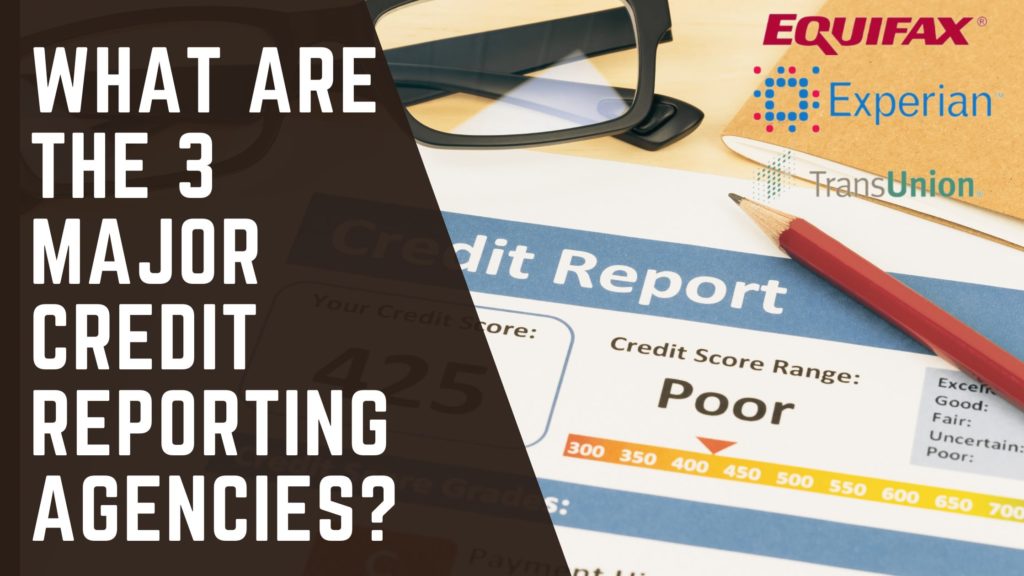Credit bureaus are specialized firms responsible for gathering and managing consumer credit data obtained from lenders, including credit card companies, mortgage providers, and other loan institutions. Their primary role is to assess our perceived creditworthiness, essentially evaluating the likelihood of us meeting our credit responsibilities on schedule. This valuable information is then consolidated and shared with businesses that have a vested interest in understanding our credit history.
Discover the significance of credit bureaus and why they hold such a crucial role in shaping our financial journeys.
What Is a Credit Bureau?
Credit bureaus, alternatively known as “credit reporting agencies” (CRAs), play a critical role in gathering and managing consumer credit information. In the United States, the three major CRAs are Equifax, Experian, and TransUnion, all publicly traded for-profit companies. While smaller agencies exist, it is the major CRAs that creditors and lenders typically consult when assessing your credit.
These major CRAs receive pertinent credit-related data from the companies and lenders with whom you conduct business. They regularly receive updates on your bill payment history, any instances of complete default, and the extent of debt owed to these entities. Additionally, credit bureaus also extract relevant public records, such as tax liens and bankruptcy information, from state and local courts, which they include in your credit report.
Furthermore, CRAs may sell your credit information to companies seeking to pre-screen you for their products and services, as well as to businesses with a legitimate and lawful reason to review your credit history. For instance, a company to which you have applied for credit would have a valid cause to examine your creditworthiness.
The 3 Major Credit Reporting Agencies
Learn more about each major credit reporting agency: Equifax, Experian, and TransUnion.
Equifax
Established in 1899, Equifax has a global presence, operating in 24 countries and making strategic investments. It provides consumers with credit fraud protection and identity theft protection services while also offering credit reports for businesses. Consumers have the option to avail credit monitoring services, inclusive of their Equifax credit scores, sometimes referred to as Beacon scores.
However, Equifax faced a significant setback in 2017 when it fell victim to a data breach, compromising the sensitive personal information of a staggering 147 million consumers. To address the issue, Equifax introduced a tool on its website, allowing individuals to check whether their data was affected by the breach. As part of its remedial efforts, the company also extended free credit monitoring services to those whose information was compromised. You can gain access to their credit scores and all three major credit agencies along with their comprehensive credit reports if you subscribe to a monthly service.
Experian
Experian traces its origins back to London, where enterprising individuals began exchanging information about customers who failed to meet their financial obligations. This led to the establishment of the Manchester Guardian Society in 1826, a crucial precursor to Experian’s eventual global presence. Today, Experian operates in 45 countries and employs over 17,800 professionals, earning recognition as one of Forbes’ “World’s Most Innovative Companies” in 2018.
Experian employs the FICO 8 credit score calculation system. You can gain access to their credit scores and all three major credit agencies along with their comprehensive credit reports if you subscribe to a monthly service.
TransUnion
In 1968, TransUnion began its journey as a holding company for a tank car business but swiftly expanded its scope to encompass credit reporting services. By 1988, the company had achieved comprehensive coverage and amassed consumer information for every active adult in the U.S., solidifying its standing in the credit industry. Today, TransUnion’s database boasts data from over one billion consumers across more than 30 countries.
To safeguard against potential identity theft or if you suspect you might be a victim, TransUnion offers the option to place a freeze on your credit report. By taking this proactive step, TransUnion ensures that the other two major credit reporting agencies are promptly notified of the freeze, providing an added layer of protection for your credit information. You can gain access to their credit scores and all three major credit agencies along with their comprehensive credit reports if you subscribe to a monthly service.
What is FICO?
The Fair Isaac Corporation (FICO) is another major company in the credit industry. FICO developed and maintains the FICO credit score, but it is not a credit reporting agency. Although FICO compiles credit scores based on data from the major credit bureaus, it does not collect credit report data on its own.
How the Credit Bureaus Are Regulated
The operations of credit bureaus, including other similar agencies, are governed by federal legislation known as the Fair Credit Reporting Act (FCRA). Given the sensitive nature of the data they handle for millions of individuals, these bureaus fall under the scrutiny of the Federal Trade Commission (FTC).
It is crucial to note that credit reporting agencies can solely furnish information and analytical tools to assist businesses in making informed decisions regarding extending credit and determining suitable interest rates. However, the credit bureaus themselves do not have the authority to make these credit-related decisions. Their role is primarily limited to providing relevant data and insights to aid businesses in their credit assessments.
Why Your Information and Score May Differ by Credit Bureau
Credit bureaus maintain business relationships with various banks, credit card issuers, and other companies where you hold accounts. Despite these connections, it’s essential to understand that credit bureaus operate as separate entities. Consequently, your account history may appear on one or all of your credit reports from these agencies due to their associations with the respective businesses. However, the credit bureaus do not share your account information with one another, except in cases of credit freezes and fraud alerts.
As each credit reporting agency (CRA) is distinct, your credit score might differ among them. This variation can occur because not all creditors report to every major CRA, resulting in score discrepancies. Additionally, different credit bureaus may utilize diverse scoring models, further contributing to the divergence in credit scores. It is prudent to check all three of your credit scores annually to ensure accuracy and gain insight into your credit standing across various agencies. Regular monitoring allows you to verify the correctness of the information presented in your reports.
Note
When potential creditors and lenders check your credit, they may only pull one agency’s report, because it’s usually less expensive for a business to check just one credit report.
How to See Your Three Credit Reports
You have the right to access and review your credit reports, and once a year, you can obtain a free report from each of the major credit reporting agencies (CRAs). To request your free reports, you can visit AnnualCreditReport.com or call 877-322-8228.
Furthermore, if you have been denied credit, you are entitled to a complimentary copy of your credit report, but you must make the request within 60 days of the decline.
If you desire to monitor your credit more frequently, you have the option to purchase additional credit reports directly from any of the CRAs at any time. Although Equifax and Experian are separate entities, they offer combined credit reports that include information from all three major CRAs within a single document. This consolidated report provides a comprehensive view of your credit standing. You can gain access to credit scores and all three major credit agencies along with their comprehensive credit reports if you subscribe to a monthly service.
How to Dispute Information With the Credit Reporting Agencies
If you come across any inaccurate information in your credit report, it is crucial to take prompt action and directly contact the credit agency to dispute the errors. According to a study conducted by the Federal Trade Commission, approximately one in four consumers had errors on their credit reports, which adversely affected their credit scores. Moreover, one in five consumers found inaccuracies in at least one of their three credit reports, and after disputing them, these errors were eventually corrected by the credit reporting agencies.
To address the issue effectively, consider reaching out to both the credit bureau and the lender or company responsible for submitting the incorrect data. It is advisable to communicate in writing, and it’s essential to retain copies of all correspondence for your records. Below, you will find the contact information for each of the major credit bureaus:
Equifax:
- Phone: 866-349-5191
- Mail: P.O. Box 105788, Atlanta, GA 30348
Experian:
- Phone: 888-EXPERIAN (397-3742)
- Mail: P.O. Box 9554, Allen, TX 75013
TransUnion:
- Phone: 833-395-6938
- Mail: P.O. Box 2000, Chester, PA 19016
By taking proactive steps and reporting any inaccuracies, you can safeguard your creditworthiness and ensure the accuracy of your credit reports.
Their are also DIY Credit Repair Kits that are available with sample letters and instructions on how to dispute the inaccuracy of items on your report.
Fraud Alerts and Credit Freezes
You can also reach out to any of the CRAs to place a fraud alert or credit freeze on your credit report if you have reason to believe that you’re a victim of identity theft. A credit freeze blocks access to your report, so you can’t apply for credit if you’ve put one in place. This service is often free, and you can lift the freeze at any time.
Placing a fraud alert works in much the same way, and it stays in effect for one year. An alert is always free, but you might have to pay to place a credit freeze in some states. It’s a good idea to freeze your account with all three major credit bureaus if you think there’s a problem.
By checking your credit reports at least once a year, you can be sure to stay on top of any inaccurate information or fraudulent activity. It’s best to clear up any disputes as quickly as you can, so they won’t negatively affect your finances.
When do credit card companies report to credit bureaus?
Not all credit card companies report on the same schedule, but if they report to one of the three major credit bureaus, you can expect them to report monthly at least. Credit bureaus prefer to receive information on the billing cycle date, but you can ask your credit card company for more information about exactly when they report.
When does the credit bureau update your credit score?
Credit bureaus update your credit score whenever they receive new information.12 If there’s a change that hasn’t been reflected in your credit score (like paying off a credit card), it’s probably because the company hasn’t reported that information to the credit bureau yet. If there is inaccurate or outdated information in your credit report, you are entitled to dispute it.



